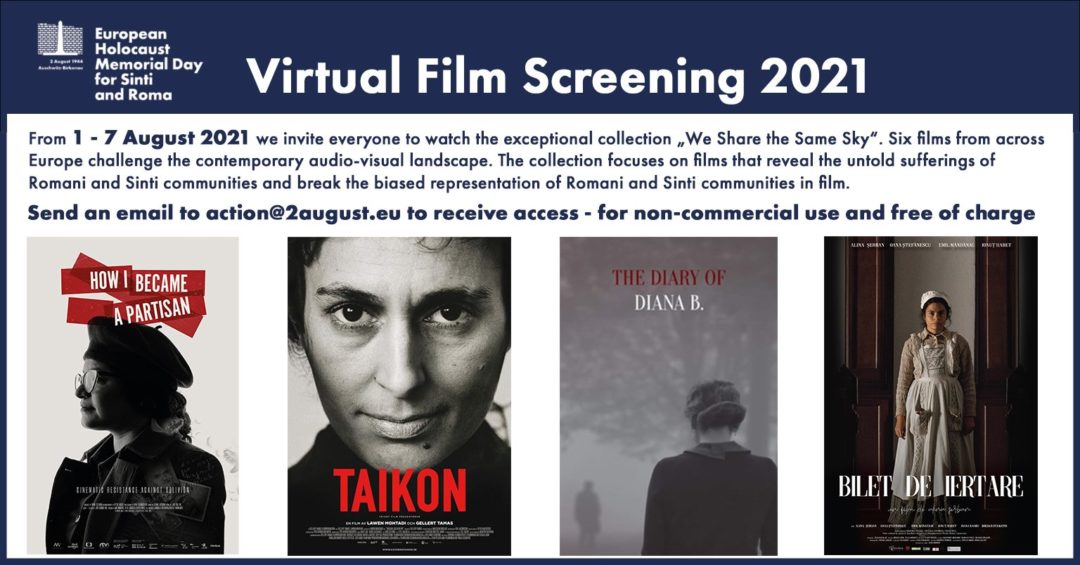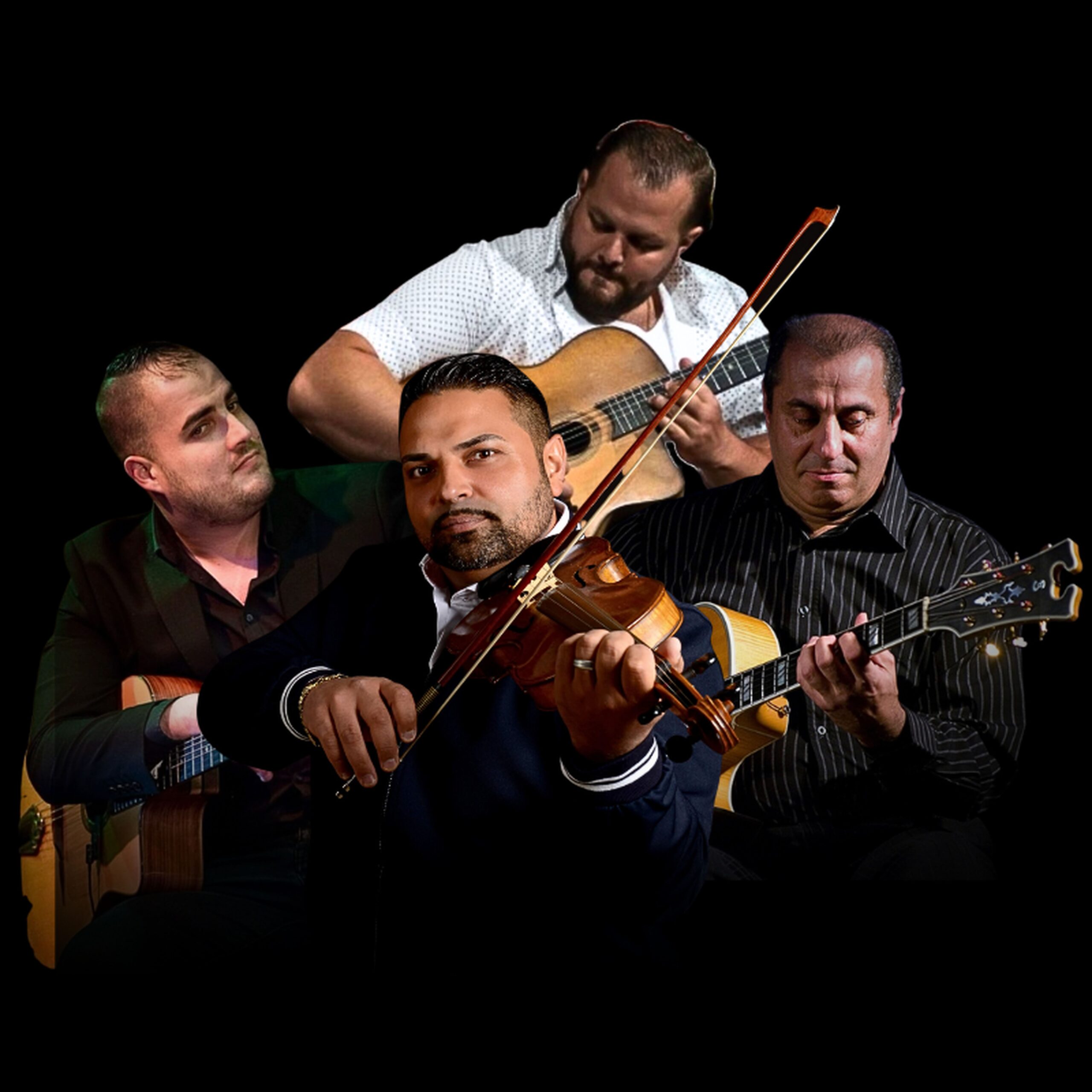Datum
01.08.2021 - 07.08.2021
Ganztägig
The collection of films assembled on the occasion of the 2021 European Holocaust Memorial Day for Sinti and Roma includes six films from across Europe (Romania, Slovakia, the Czech Republic, Hungary, Croatia and Sweden). Among them are a fiction short, two short documentaries, a docudrama, a music documentary and a portrait.
Registration at action@2august.eu is required. We will provide the details for participation after the registration.

The collection, entitled We Share the Same Sky, focuses on films that reveal the untold sufferings of Romani and Sinti communities. There is much to learn from the experience of other minorities in the struggle to deconstruct Roma representation. In the past, films about Roma were frequently staged and designed to appeal to the Western imagination. This representation is still dominant. The image of “gypsy otherness” today is prevalent across the contemporary audio-visual landscape, in mainstream films, on the Internet, in social media.
Intervention by Romani authors or film directors into this biased representation can be understood as counter culture. Such interventions include Vera Lackova’s How I Became a Partisan (2021 avant premiere) and Alina Serban’s Letter of Forgiveness (2020), a short feature film that builds on personal lived experiences and family stories rather than cultural clichés. Letter of Forgiveness deals with Romani enslavement in Wallachia, its nuanced approach brings into sharp focus heretofore untold stories of the suffering of Romani slaves. It has the potential to inform a generation about their In her film Vera Lackova the Slovak Romni who is not just the filmmaker but also the protagonist of the film discusses her resistance against oblivion and unearthing a hidden past from Roma history. Vera’s film is uncovering the fate of her great-grandfather in the resistance and it is her feature-length documentary debut.
An important turning point in the visual representation of Romani people on film came in the 1980s when Romani directors began to play an active role in defining the Pharrajimos, or Roma Holocaust, a period of European history that had been relegated to silence. Katrin Seybold, Melanie Spitta and Romani Rose in Germany and Joszef Lojko Lakatos and Agnes Daroczi in Hungary are among the first Romani filmmakers who used survivor interviews and archival footage to reconstruct stories that had never been deemed worthy of inclusion in the official history.
The experiences of concentration camps are recounted in the documentary Requiem for Auschwitz (2014) by Agnes Daroczi and Kristof Asboth and in the historical documentary by Janos Barsony and Agnes Daroczi Historia Romani (2005), a short documentary that focuses on the history of the Romani people in the first half of the 20th century in the Carpathian basin.
The filmmakers represented in the collection are predominantly women, storytellers who carry the special responsibility to remember and depict the past in order to build a better future. Reconstructing history through their vivid artistic vision and highlighting the drama and heroic achievements of a single person or a community is one of the most compelling ways to retrieve the traces of Roma history. A good example is Dana Budisavljević’s portrait The Diary of Diana B. (2019) a docudrama about a woman deeply troubled by the persecution of innocent mothers and children in Nazi-occupied Croatia. Diana, a distinguished Austrian, undertakes what is to become one of the most significant rescue campaigns of the Second World War, one that saved 10,000 children from certain death.
The collection’s final piece is a documentary by Lawen Mohtadi and Tamas Geller, Taikon (2015) a documentary about the life of the Romani writer and activist Katarina Taikon. The documentary tells the story of how Katarina Taikon became a leading voice for the Romani people in Sweden as she fought for their civil rights. She influenced an entire generation of youth with her children’s books about Katitzi, a young Romani girl.


